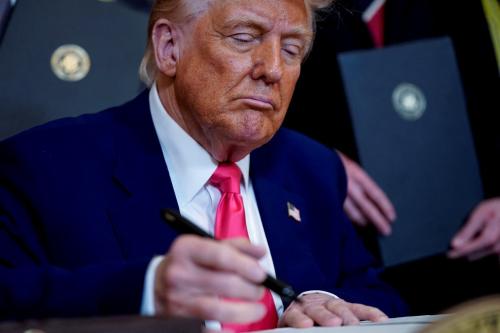It was good to hear strong shout-outs for clean and renewable energy sourcing as part of the balanced energy stance promoted in President Obama’s State of the Union speech this week.
We’ve long agreed that the “all of the above” energy approach Obama championed last night could be desirable so long as it is just that—oriented to the balanced development of all sources including American renewable and clean energy as well as fossil fuel resources.
In that nexus lies a politically defensible sweet-spot notwithstanding the tough politics of the energy debate.
And yet, the president left out a crucial link in his renewed commitments to both clean energy and increased conventional energy: He missed the opportunity to tie the revenues from fossil fuel drilling permits and licenses to investment in energy innovation.
In this respect, a truly potent “all of the above” stance would move to link reasonable continued fossil fuel exploitation to investments in the innovation necessary to accelerate the widespread adoption of clean new energy technologies. Along these lines, a smart “all of the above” approach to the nation’s energy challenges might channel the royalties and fees associated with increased off-shore and inland fossil fuel extraction into programs like ARPA-e, the Energy Innovation Hubs, or more generally into basic and applied clean energy research and deployment.
And as it happens, such a linkage once had (and may again garner!) bipartisan support. After all, not so long ago Rep. John Boehner (R-OH), now speaker, introduced the House Republicans’ American Energy Act of 2009 and in it proposed a bargain that would have paired expanded oil and gas drilling with new investments in renewable and alternative energy. The bill proposed putting hundreds of billions of anticipated new oil and gas revenues (and that even before the shale gas boom) into a trust fund to accelerate clean energy innovation. The upshot: For a few fleeting months that broad outline pointed to an intriguing way forward.
Now, maybe that grand trade beckons again. Yet to make it a truly productive agreement the Obama team needs to remember that “all of the above” should entail a true trade. Here is hoping that the forthcoming elaboration of the new stance backs up the president’s stated commitments with a commonsense proposal for linking stepped-up fossil fuel extraction to revenue-raising for investments in new and cleaner energy technologies.
The Brookings Institution is committed to quality, independence, and impact.
We are supported by a diverse array of funders. In line with our values and policies, each Brookings publication represents the sole views of its author(s).



Commentary
The Missing Link in the State of the Union Energy Agenda
January 25, 2012